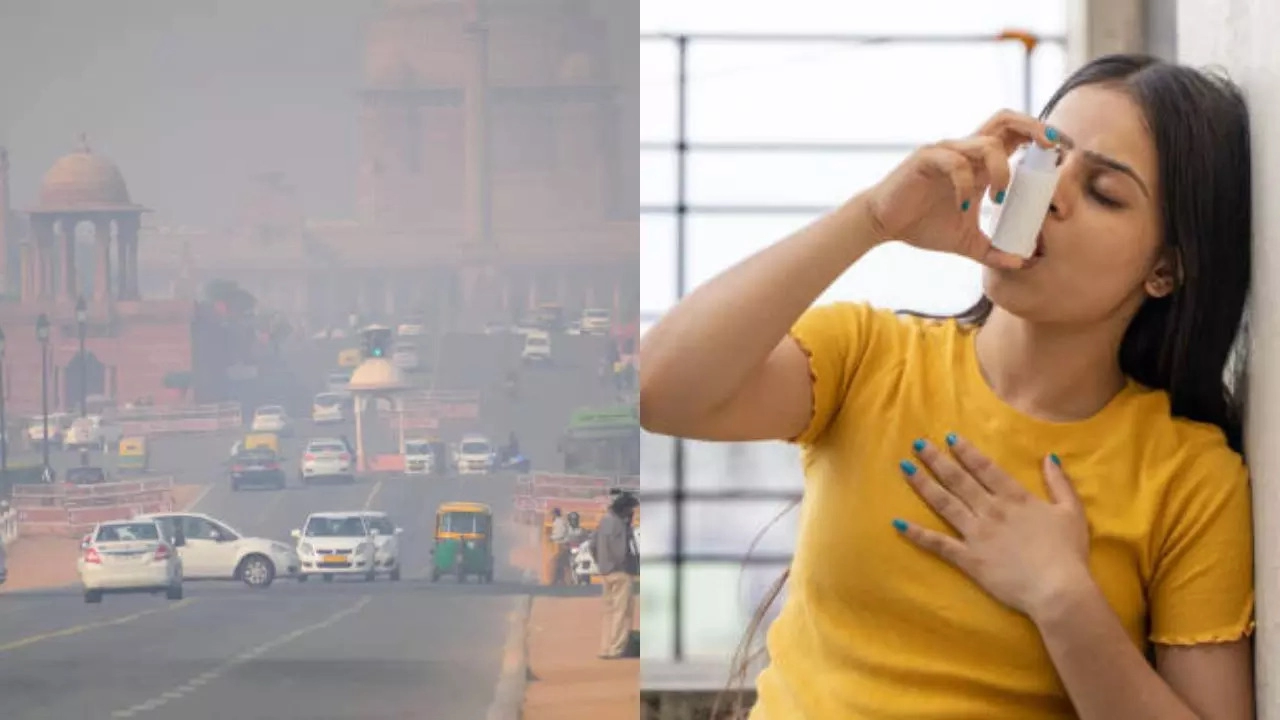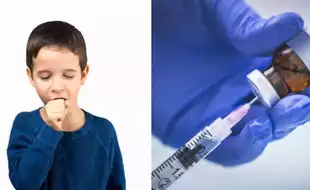Don't Breathe! Delhi-NCR Air Takes A Dangerous Turn With Rise In 15% Respiratory Illnesses; How To Protect Yourself?
Oct 25, 2024
News

The Consistent AQI over 300 in the last few days has led to at least a 15 per cent rise in conditions like asthma, bronchitis and COPD
India’s capital and the areas around it are grappling with severe pollution, smog, and air toxicity, which is constantly giving a significant rise to respiratory diseases. According to doctors, the air quality is highly dangerous for citizens and is contributing to both short-term and long-term life-threatening illnesses.
The Consistent Air Quality Index (AQI) over 300 in the last few days has led to at least a 15 per cent rise in conditions like asthma, bronchitis, and chronic obstructive pulmonary disease (COPD). “Breathing in polluted air can irritate the airways, resulting in shortness of breath, coughing, wheezing, asthma attacks, and chest pain,” Dr. Arjun Khanna, Head of the Department and Senior Consultant, Department of Pulmonary Medicine, told Times Now.
“In fact, it not only triggers new cases of diseases like asthma but also worsens pre-existing respiratory illnesses leading to frequent asthma attacks and COPD flare-ups. Additionally, it can contribute to the rapid progression of chronic illnesses as well,” he added.
How does air pollution endanger your breathing?
According to statistics, hospitals across New Delhi and the surrounding areas are also feeling the pressure - with many reporting a rise in patients presenting symptoms of respiratory distress. Ram Manohar Lohia Hospital has introduced special outpatient department (OPD) services to cater to the growing number of pollution-related cases.
Doctors say these pollutants – which include nitrogen dioxide and PM2.5 get deposited in your respiratory tract and lungs in considerable amounts, causing inflammation. Subsequently, it causes you to:
- Cough more
- Have difficulty breathing
- Have persistent wheezing
- Have irritation in your nose and throat
- Feel pain in your chest while breathing
- Are more breathless when doing activities outdoors
- Have asthma attacks or COPD flare-ups
- Need to use your reliever inhaler more often
Dr.Goyal added that with winter setting in the condition is only going to be worse.
Ways to protect yourself from aggravating respiratory issues
Dr. Khanna said a few ways you can protect your lungs and prevent flare-ups of already existing respiratory issues is by identifying the triggers and staying away from them. Also, those who have asthma should immediately take preventive measures to avoid any emergency situation. “The first preventive approach should be to ensure that you are able to identify as well as avoid possible triggers.”
“Additionally, having an action plan ready in consultation with your doctor, an inhaler by your side – specifically in the case of asthmatics and taking regular inhalation therapy as prescribed by your doctor is critical. To further manage your condition more effectively, monitoring your lung health with a peak flow meter can be an added layer of precaution,” said Dr. Khanna.
Basic measures include maintaining healthy air quality in your home, reducing time spent outdoors, reducing strenuous and outdoor exercise, and maintaining a safe distance from pollution hotspots.
According to Dr. Goyal, the vulnerable population, like small children, those above the age of 65 years and those who are battling existing health issues, must go for preventive vaccinations like influenza and pneumococcal jabs.
“Influenza virus is the most common virus that causes viral related respiratory infection in adults, as Streptococcus pneumonia bacteria causes infection of the lungs. To reduce the severity of these infections, leading to less criticalities and less hospitalization, these vaccinations are advisable,” he said.
Get Latest News Live on Times Now along with Breaking News and Top Headlines from Health and around the world.



